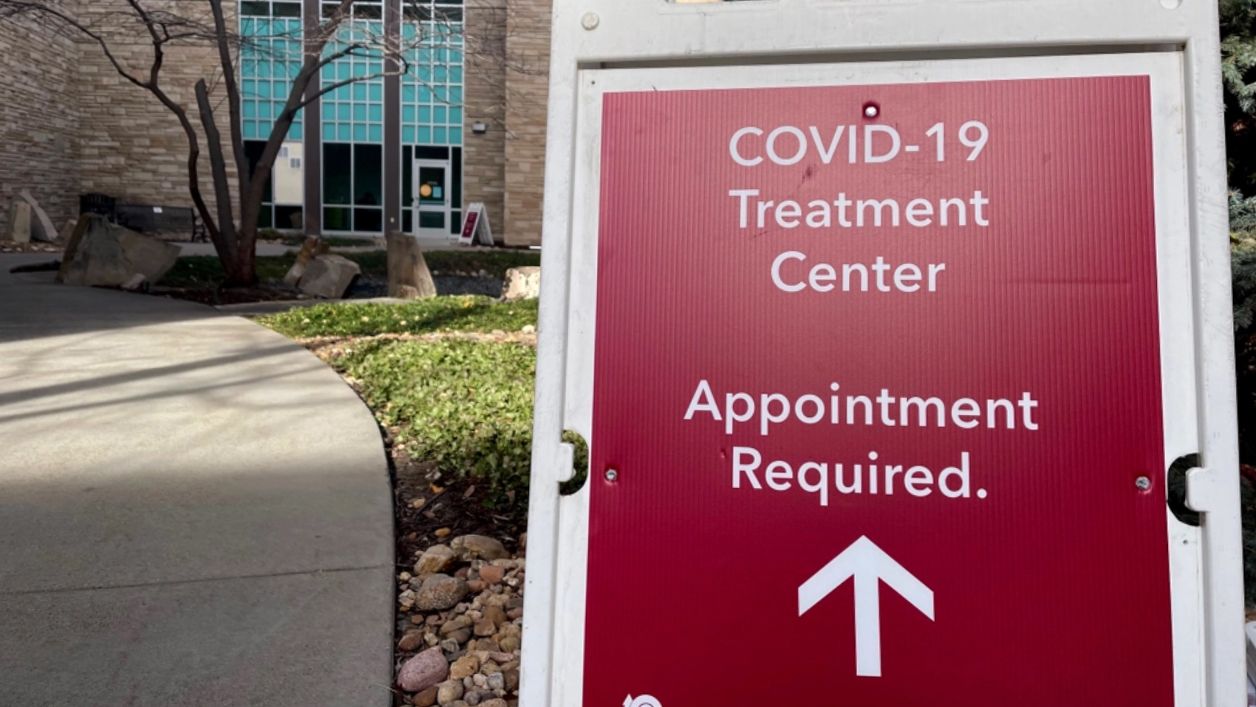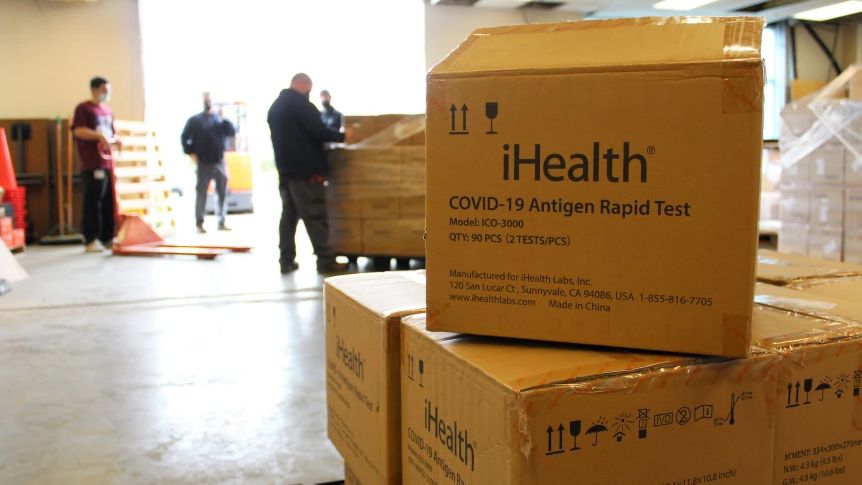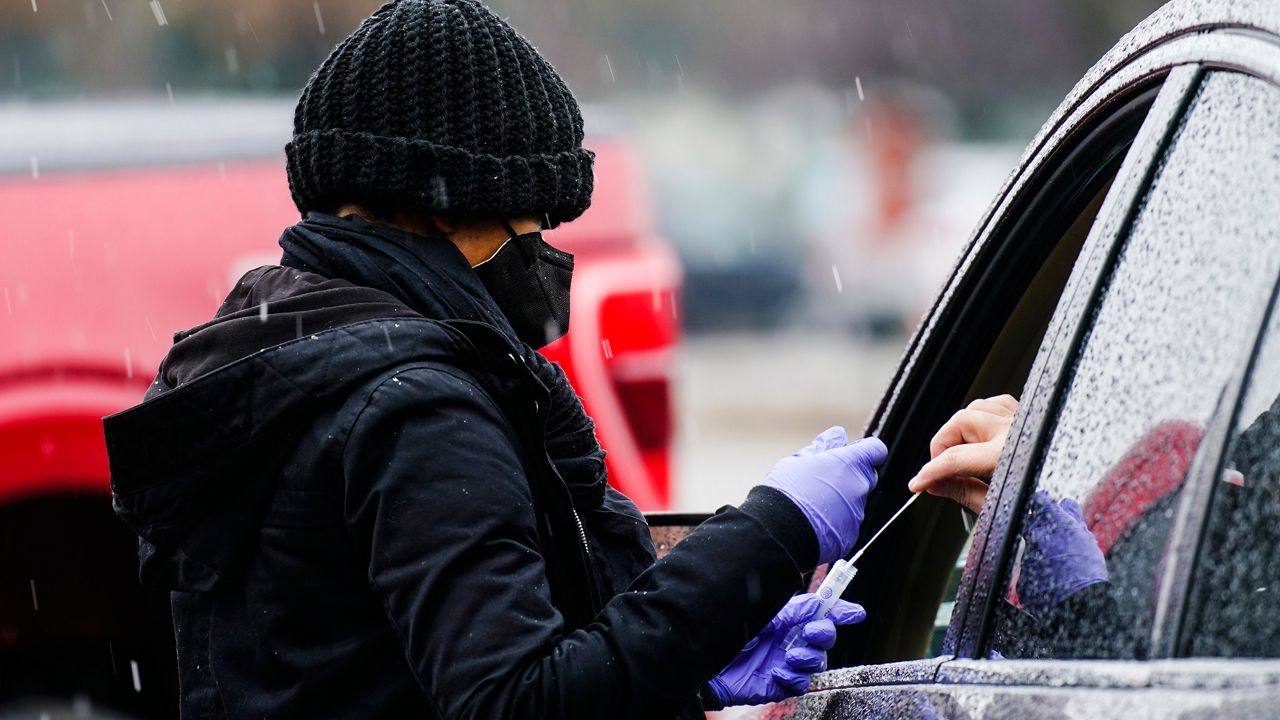COLUMBUS, Ohio — Ohio hospitals said they are only able to offer COVID-19 outpatient treatments to the highest-risk patients because regulators halted the use of two monoclonal antibody drugs.
What You Need To Know
- Hospitals are using several outpatient treatments for high-risk patients
- The supply of the drugs is extremely limited, health officials said
- The eligible groups are seniors and people who are immunosuppressed
The Food and Drug Administration said Monday that the treatments from Regeneron and Eli Lilly should not be used because they are ineffective against the omicron variant. In Ohio, some hospitals had stopped using the drugs weeks earlier.
Health officials told Spectrum News that there are four other options for outpatient treatments, but the availability is limited.
Dr. Mark Herbert, infectious disease specialist at Mount Carmel Health System in Columbus, said of these four drugs, just two are efficacious and practical to use — Sotrovimab, another monoclonal antibody drug that works against omicron, and Paxlovid, Pfizer’s oral antiviral pill.
“The other agents really are either not that effective, or we don't have enough nurses and chairs to be able to infuse them for outpatients,” he said.
Herbert said due to the limited supply, outpatients cannot get multiple treatments.
This week, Ohio was allocated 1,536 courses of Sotrovimab and 2,880 courses of Paxlovid by the Department of Health and Human Services. That’s not enough for even 5% of Ohioans who are testing positive each week to be treated.
For Sotrovimab, Mount Carmel is only offering the treatment to seniors 75 and older as well as some people who are severely immunocompromised, Herbert said. Despite those strict criteria, the health system’s 100 infusion appointments per week aren’t nearly enough to meet the demand among their patients.
During a news conference on Thursday, Ohio Department of Health Director Dr. Bruce Vanderhoff said providers in the state are adjusting to the recent changes to the guidance for therapeutics.
“Wth the evolution of omicron and omicron’s rapid ascendancy, we unfortunately lost the benefit of a couple of our previously very effective monoclonal antibody therapies that were available to our hospitals and, actually, were available in fairly substantial numbers,” he said.
Vanderhoff said the state is working with its monoclonal antibody therapy providers to direct the limited supply of Sotrovimab to the patients most likely to benefit.
Paxlovid, which was authorized last month, also continues to be in very limited supply in Ohio, Vanderhoff said.
Dr. Brian Kaminski, ProMedica’s vice president of quality and patient safety, said the Toledo-based hospital system considers Paxlovid to be the best treatment for eligible patients.
He said it doesn't strain hospital resources because it’s a pill-based treatment that can be picked up at the pharmacy, and it appears to be at least as efficacious as any of the other treatments.
Paxlovid is taken with the drug ritonavir, which has many drug to drug interactions, Herbert said. In those cases, Sotrovimab could be the recommendation.
Merck’s Molnupiravir, the other oral pill that has been authorized, only showed a 30% reduction of severe outcomes in a clinical trial. Still, health officials recommend the drug if other treatment options are not available.
Kaminski said ProMedica is also offering the most cumbersome treatment — outpatient Remdesivir infusions. On Jan. 21, the FDA approved Remdesivir, the intravenous antiviral medication that has previously only been used in hospitalized COVID-19 patients, for use as an outpatient drug administered via infusion.
“We actually have to give an infusion three days in a row and we're doing this in an outpatient setting, and you can imagine the coordination it takes to do that, but we are doing that because we do have availability of Remdesivir for those patients who qualify,” Kaminski said.
Herbert said Mount Carmel has not gone forward with a similar approach because it would take too much resources.
“We have an extremely limited amount of outpatient-infusion appointments, so right now, we're using 100 outpatient infusion appointments to try to treat 100 patients with monoclonal antibodies. If we convert those outpatient infusion appointments to Remdesivir, we can only treat 33 patients because they need three doses,” he said.
Ohio hospitals are typically limiting access to outpatient therapeutics to unvaccinated people at high risk and to vaccinated people who may not respond well to vaccines because they are immunosuppressed.
Vanderhoff said the state is hopeful that hospitals will get greater access to effective therapeutics in the coming months.
“What we've continued to do is to advocate very strongly and work very closely with federal authorities around how the production of these life-saving treatments can be accelerated so that more and more of these very important agents can be made available, but the reality is today we're looking at very limited supply,” he said.








